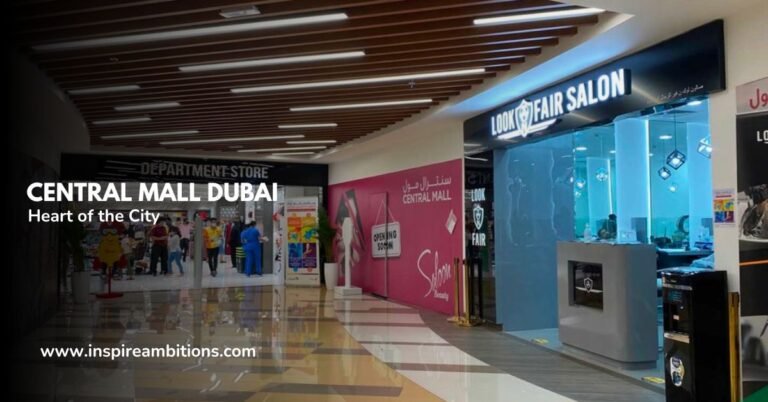العمل الحر في دبي: دليلك للازدهار في اقتصاد الأعمال الحرة
Freelance work in Dubai represents a dynamic segment within the city’s vast and diverse business ecosystem. The allure of flexible working hours and the ability to choose clients and projects has seen many professionals in Dubai transition to freelance work. This paradigm shift is bolstered by the Emirate’s robust economic strategies that foster a conducive environment for self-employed individuals across various industries, from media and technology to education and healthcare.

In recognition of the growing freelance market, Dubai has established legal frameworks that enable freelancers to work legally and with greater financial security. Freelancers can now obtain the necessary permits and licences to operate without the need for a traditional employer-employee arrangement, offering them independence and the chance to fully exploit their entrepreneurial spirit and commitment to transform into a smart city has also empowered freers with cutting-edge technological infrastructure, ensuring high connectivity and accessibility to global markets.
الماخذ الرئيسية
- Dubai offers a favourable environment for freelancers with legal support and entrepreneurial opportunities.
- There are various industry opportunities for freelancers, enhancing the scope for independent professionals.
- The city’s advanced technological infrastructure supports the operational needs of freelance work.
Understanding Freelance Work in Dubai

In Dubai, part of the United Arab Emirates, freelance work is recognised and recognised administrative channels that ensure a structured approach to this flexible work style.
Defining Freelance Work
Freelance work entails individuals offering their services to clients on a project-by-project basis. In Dubai, freelancers must acquire a residency visa and work permit; this can often be obtained through a free zone entity that operates Arab Emioperate, including but not limited to Dubai Media City and Dubai Design District.
Benefits of Freelancing in Dubai
The benefits of freelancing in Dubai are notable:
- المرونة: One has autonomy and clients, allowing for a customised work schedule.
- Variety of customised opportunities: With its burgeoning economy, Dubai presents a wealth of sectors in need of freelance proceeding
- المزايا الاقتصادية: Freelancers in Dubai are not subject to personal income tax, enhancing the financial allure of this working style.
It’s pivotal for those considering freelancing in Dubai to understand these foundations and benefits, helping them to navigate and thrive within the freelance ecosystem in the city.
Legal Framework for Freelancers

The United Arab Emirates (UAE) provides a structured legal framework for freelancers, ensuring they can operate with legitimacy and security within the region. This section outlines the essential legal aspects of freelancing in Dubai, focusing on licensing, contracts, and residency requirements.
Obtaining a Freelancer License
In Dubai, freelancers must secure a license to operate legally. This license is obtainable through various free zones such as Dubai Media City, Dubai Studio City, and Dubai Design District. The process involves submitting an application and relevant documents to the free zone authority. Successful applicants receive a permit to offer clients services and assert their legal status as independent professionals.
Contractual Agreements
Freelancers in Dubai must engage in formal contractual agreements with their clients. These contracts outline the scope of work, payment terms, and other essential clauses to protect both parties. These agreements must comply with the UAE’s employment laws to ensure they are enforceable and provide a clear framework for the professional relationship.
Visa and Residency Requirements
To freelance legally in Dubai, one must have a valid تأشيرة الإقامة. The visa is usually issued alongside the freelancer license, allowing individuals to live and work in the UAE. Those already residing in Dubai on a spouse’s or parent’s visa can apply for a work permit, granting them the right to freelance. This work permit is essential for non-citizens undertaking freelance work within the country.
Setting Up in Dubai’s Business Ecosystem
Dubai offers an attractive freelancer environment with its strategic location, state-of-the-art infrastructure, and tax-free zone encouraging entrepreneurial activities. Setting up in this vibrant city means being part of a dynamic business ecosystem tailored for growth and innovation.
Choosing the Right Location
When establishing as a freelancer in Dubai, one must consider the location with an eye on connectivity, clientele, and the type of freelance activity. Most freelancers opt for one of Dubai’s Free Zones due to their benefits, such as 100% foreign ownership, tax exemptions, and no currency restrictions.
Access to Media City and Free Zones
Dubai Media City is the region’s media industry hub, hosting global and regional media companies. Freelancers in the media, marketing, and communications sectors find enormous opportunities here. Dubai’s various free zones offer different advantages; for instance, Dubai Internet City provides IT services, while Dubai Design District caters to creatives. These zones often provide a simplified setup process, with support services to aid freelancers in navigating the bureaucracy involved in starting their businesses.
Industry-Specific Freelance Opportunities
Dubai’s dynamic economy presents diverse freelance opportunities across various sectors. Architecture, media, and information technology professionals can leverage their skills to cater to the high demand for project-based and flexible work arrangements.
والهندسة المعمارية والتصميم
Freelance opportunities in architecture and design are flourishing in Dubai, a city renowned for its skyline and ambitious urban projects. Architects can find project-based roles, often requiring proficiency in design software and an in-depth understanding of sustainable building practices. Design professionals, particularly those with skills in interior, landscape، أو urban design, are in demand to contribute to Dubai’s development’s aesthetic and functional aspects.
Media and Production
Dubai’s media and production industry offers a breadth of freelance roles, ranging from videography and editing to event production. Freelancers with expertise in film, television، و digital content creation are sought-after. As Dubai continues to grow as a media hub, opportunities for production roles with specialisation in storyboarding and specialisation post-production are increasing for freelance professionals.
IT and Programming
Software development and IT support are critical in Dubai’s continuously growing tech space. Freelancers with skills in programming languages such as PHP are in high demand. They may find opportunities to work on website development, e-commerce platforms, and custom software solutions. IT support roles are also significant, with a need for experts capable of assisting with technical issues during events and contributing to IT projects with an analytical approach to problem-solving.
Freelancers with niche skills in these areas often find a welcoming job market in Dubai, with the city’s ongoing projects and digital growth driving the need for specialised expertise.
Forming andspecialisedreelance Teams
In Dubai’s dynamic business environment, forming and managing freelance teams with various skills is crucial for project success. It necessitates strategic network building and practical collaboration tools to manage a team’s workflow.
Building a Network
The foundation of a successful freelance team lies in a robust network of professionals. In Dubai, where freelance work is increasingly popular, one must actively seek out and vet potential team members who align with the project’s objectives. Freelancers with diverse skills ranging from IT asset management to employee onboarding are readily available.
- Identify Core Skills: Essential for the project’s needs; for example, a Microsoft Teams Freelancer might be crucial for communication and file-sharing platforms.
- Check Past Performance: Look for freelancers with a proven track record, akin to those with high ratings and positive reviews on platforms like Upwork.
Collaboration and Project Management
Once a team is assembled, efficient project management becomes pivotal. Dubai’s freelancers often leverage Microsoft Teams for seamless communication and file sharing, creating a transparent and collaborative environment.
- Assign Roles Clearly: Define each member’s responsibilities to prevent overlap and ensure productivity.
- Use Project Management Tools: Adopt tools like Microsoft SCCM for managing resources or specialised software for tracking specialised deadlines.
Careful consideration of these elements will foster a well-coordinated freelance team capable of delivering high-quality work.
Navigating Financial Aspects
Freelancers in Dubai must adeptly handle invoicing and payments while also understanding the unique taxation environment of the UAE.
Invoicing and Payment
Invoicing is a critical step for freelancers, as it formalises the demand for payment rendered. Freelancers should ensure their invoices contain all necessary details, including a clear description of the service, the amount due, payment terms, and a due date. Payment methods should be specified, whether bank transfer, cheque, or digital payment platforms.
أ contract often stipulates payment terms and is a binding agreement between the freelancer and the client, clarifying the expectations of both parties. Prompt and accurate invoicing helps maintain a steady cash flow and professional relations.
Taxation in the UAE
The UAE is known for its favourable tax regime. There are no income taxes for individuals, which includes freelancers. However, they must keep abreast of any regulatory changes affecting their financial management.
VAT was introduced in the UAE in January 2018 at a standard rate of 5%. Freelancers must register for VAT if their taxable supplies and imports exceed AED 375,000 annually. They must charge VAT on their invoices and file regular tax returns.
Freelancers should maintain meticulous financial records, and it’s recommended to consult a financial planner or tax advisor to ensure compliance and optimal financial management.
Marketing Yourself as a Freelancer
In the dynamic landscape of Dubai’s freelance market, a freelancer’s success, such as a designer, hinges on their ability to market their skills and services effectively. An impactful online presence and leveraged word-of-mouth play pivotal roles in nurturing and expanding their clientele.
Online Presence and Branding
A freelancer’s online presence is their global business card and portfolio. It’s essential that they meticulously curate their digital footprint to reflect their expertise and unique style, particularly for designers whose work is visual. Platforms like LinkedIn and industry-specific job boards increase visibility. A well-structured website or online portfolio should showcase their best work and include client testimonials, clearly demonstrating their capabilities and achievements.
Networking and Word-of-Mouth
For freelancers, personal interactions remain a powerful tool for growth. Engaging with industry peers at events and workshops is critical to forming strategic relationships. Such events often occur in Dubai’s free zones, including Dubai Design District, hubs for creative professionals. Recommendations and referrals can significantly bolster a freelancer’s reputation. Keeping in touch with past clients and reminding them of their services with a professional follow-up can prompt them to spread the word, resulting in lucrative, new opportunities.
Technological Infrastructure for Freelancers
Dubai provides an advanced technological infrastructure tailored to freelancers. This ecosystem is supported by modern software and high-quality internet services, enabling professionals to work efficiently and effectively.
Software and Tools
Dubai’s freelancers can access various software and tools essential for multiple sectors. Tools that support PHP programming are readily available for coders and developers, which is a server-side scripting language widely used for web development. The availability of these tools ensures that freelancers can deliver robust web-based solutions.
Freelancers also benefit from state-of-the-art project management and collaboration applications. These software solutions help maintain productivity and ensure seamless communication with clients and teams globally.
Internet and Connectivity
متعلق internet and connectivity, Dubai offers high-speed WAN (Wide Area Network) services that allow freelancers to connect and collaborate across various distances. They can depend on reliable and fast internet services for their day-to-day operations, which is critical for deadlines and real-time collaboration.
The city’s telecommunications infrastructure boasts widespread Wi-Fi hotspots, high-speed broadband, and affordable mobile data plans. This digital infrastructure ensures freelancers can stay connected to clients and cloud services irrespective of their location within Dubai.
Challenges and Solutions
Freelancing in Dubai offers a plethora of opportunities, but it comes with its set of challenges. This section provides an insight into common obstacles freelancers face and strategies to adapt to market changes.
Common Obstacles
Freelancers in Dubai often encounter legal requirements, such as a residency visa and work permit, which can be obtained through free zones like Dubai Media City or Dubai Knowledge Park. Another notable challenge is competition in the online marketplace, where platforms such as Upwork, Freelancer, and Fiverr dominate. Freelancers must have a strong portfolio and excellent client communication to stand out.
- Legal Requirements: Residency visa, work permit
- Marketplace Competition: Building a standout portfolio, enhancing client communication
Adapting to Market Changes
Adapting to market changes is crucial for freelancers. This involves staying updated with local regulations, which may evolve as the government seeks to attract more independent professionals. Additionally, freelancers should diversify their skill sets to meet clients’ dynamic demands and use networking to stay connected within the industry.
- Staying Updated: Monitor local regulatory changes
- Skill Diversification: Enhance and expand skills
- Networking: Leverage industry connections







